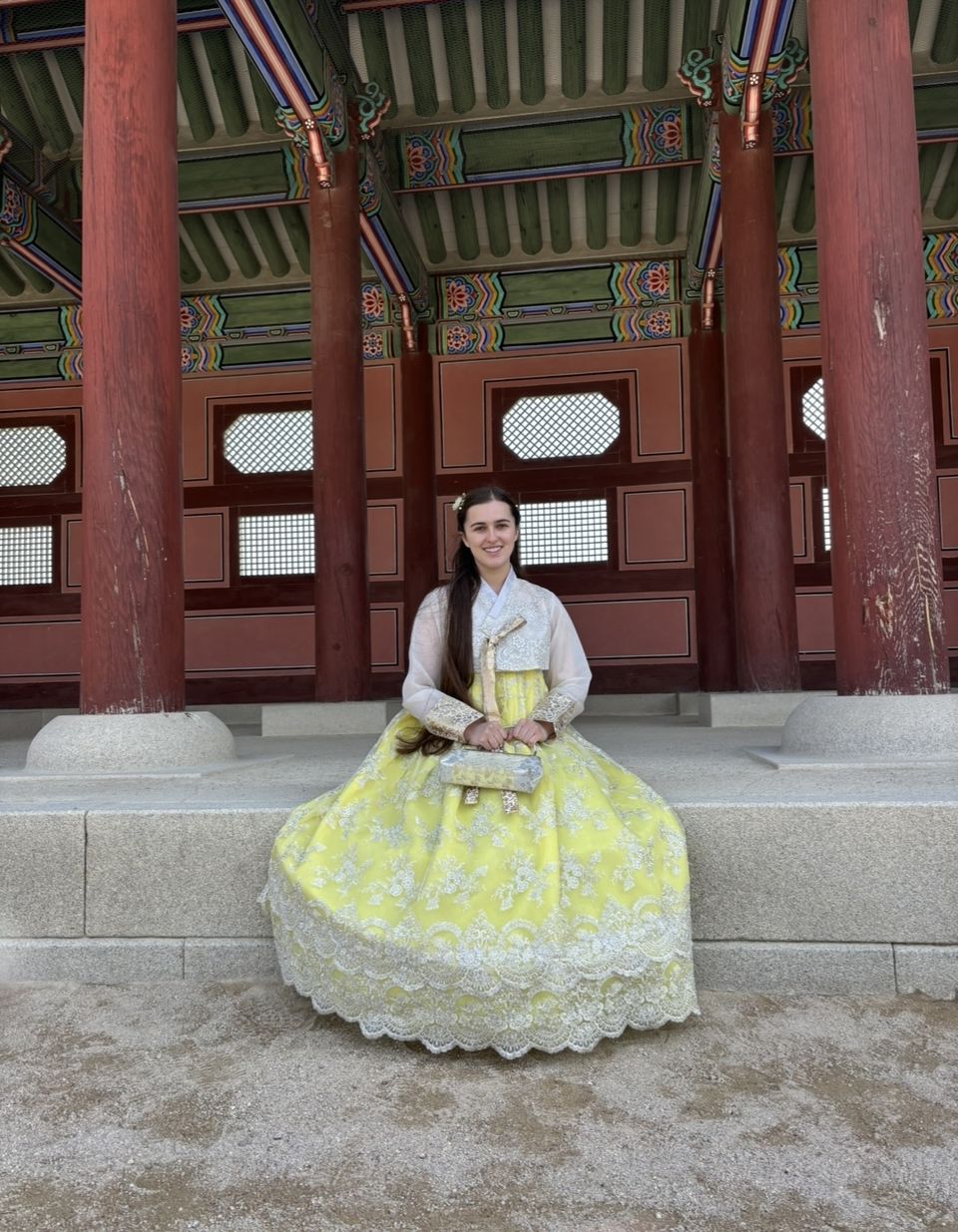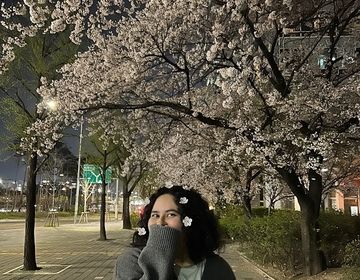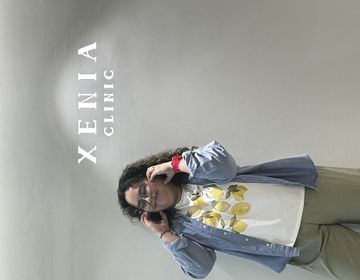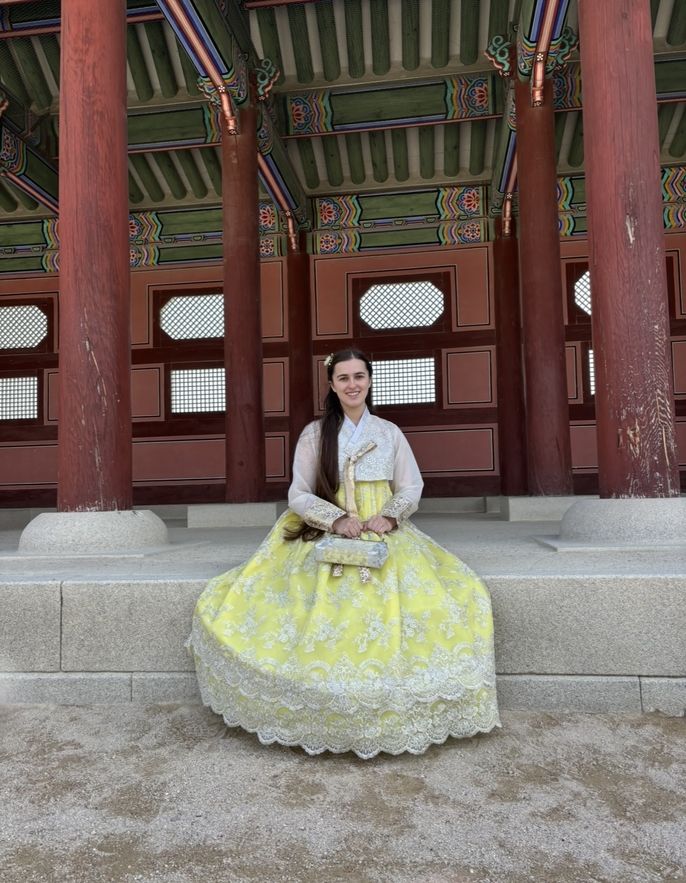CIEE Korea Spotlight: Meet Marissa - PART 1
What made you want to teach abroad?
I had previously spent time in South Korea as a student during my semester of studying abroad. I really loved the culture, language, and opportunities I encountered in Korea, so I knew I wanted to spend more time there in the future. After finishing my undergraduate education, I knew I wanted to pursue graduate school, but I wanted to have a small break to confirm and solidify what I wanted to study before committing to an academic program.
When I discovered the opportunity to teach abroad, this seemed like my natural next step for a plethora of reasons. Firstly, I would be able to save money as housing is paid for by the school in Korea. Secondly, I would have the chance to travel and gain cultural knowledge that I could apply to my education moving forward. Lastly, I would not only gain work experience to bolster my resumé with a teaching job abroad, but I would also learn invaluable skills pertaining to the job market that are very attractive to employers.
Which school type did you choose and why?
I chose public school (EPIK) as having never taught in a school setting formally before, I decided that a public school setting would likely have more structure and guidance than a private school, especially during the adjustment period of a new job and location. This decision was supplemented by public schools having, on average, more public holidays than private schools, more sick leave, and more resources in terms of funding and support through regional offices of education. While there are private schools that may have been similar to public schools in terms of benefits, and there are both pros and cons to both school types, I chose to pursue what I perceived as a better option through EPIK.

How long is your commute to your school?
My commute to school is not long as I am in a large city as opposed to a rural placement. From my apartment, I walk a short distance to a subway station and ride the train for 10-15 minutes. Afterward, I walk another 10 minutes to my school. All in all, this is a very reasonable commute as those in rural areas or smaller cities have commutes that vary greatly in length and accessibility. As such, the ease of my commute combined with the short timeframe makes it very convenient and efficient.
Where are you placed? (city or province)? What do you recommend for future teachers placed in the area?
I was placed in the capital city of Seoul. Being in Seoul, English is more widely available than in any other city. For the students, however, they do not all have equal access to the language outside of the classroom, thus potentially creating large knowledge gaps between peers. I would recommend that future teachers in this area especially (but Korea generally, as well) take this into account and be careful not to alienate those of a lower English level as well as not hinder the growth of those more advanced.
Likewise, I would recommend that, if possible, future teachers become comfortable in front of larger groups of people. Seoul is extremely densely populated which equates to large numbers of students in one classroom being the norm. Likewise, outside of the classroom, crowds are unavoidable and if being around many people constantly creates anxiety, I would not recommend Seoul as a place to pursue teaching. However, the positive side of being surrounded by people at all times is that it creates a level of safety since you are never truly alone.
Finally, I would recommend taking advantage of the condensed nature of the city by visiting points of interest often. Traveling to the other side of the city is very possible in a single day, meaning that anything you wish to do is within reach. Public transportation, especially the subway, makes traveling between districts easy and is very inexpensive. Be aware of peak travel times/rush hour to avoid crowds, if possible, but otherwise traveling is simple. The subway can be difficult to navigate at first for some, but using the Naver Map app simplifies going from Point A to Point B immensely.

What does a typical day of teaching look like for you? What levels do you teach?
Since I am in Seoul, I teach at a very large elementary school. Therefore, I teach eight 5th-grade classes and eight 6th-grade classes throughout the week. I teach the 5th graders once per week and the 6th graders twice per week. As such, I teach the same lesson multiple times in one day. However, I have 4 different co-teachers, so I am required to prepare different lessons for their classes, meaning that my daily lessons, though repetitive, can look very different.
However, a typical day for me starts at 9 am. I am required to be in the office at 8:40 but I do not start teaching until 9. At 9, I teach 5 classes in a row (40 minutes each) alongside my co-teacher with a 10-minute break in between each class. Therefore, I start at 9 and finish teaching at 1:00 pm. At 1:00 pm, I take my lunch. I eat in the cafeteria with the other teachers at the same time as the upper grades in my school until around 1:20 or 1:30. Afterwards, I have until 4:40 pm to prepare for my lessons the next day as this is my desk-warming time. At 4:40, I clock out and go home.
How is navigating the language barrier?
Since Seoul is the capital of South Korea, many foreigners come to the city often, requiring businesses and Seoulites to have at least general English comprehension. There is English on most signs and public announcements (on the subway, etc) are usually made in Korean, English, Chinese, and Japanese. Therefore it is not impossible to navigate Seoul comfortably with only English.
However, there are times here and there when having a basic understanding of Korean and/or its writing system would be beneficial. Mostly, this is for interacting with smaller businesses, getting to know the locals, ordering food, and traveling outside of Seoul. Also, learning basic phrases and how to read Korean (it is very easy!) would serve you well in forging relationships with those around you. Koreans usually do not expect you to speak with them in Korean, so when you do even with a few simple phrases, you not only make a very good impression but make them feel more comfortable opening up to you.

Have you experienced culture shock?
I have experienced culture shock in ways I didn’t expect. I did a lot of research on customs, differences between my own culture and Korean culture, and so on, so I felt somewhat prepared for the differences I would face in society. The roots of the culture shock I felt were more present in the workplace than in the public. For example, I was surprised that students do not move from room to room to attend different classes but rather the teachers come to each class’s homeroom no matter the subject being taught (apart from gym class). Likewise, I was surprised at the amount of food given at lunch to each student. The lunches are not only very healthy and well-balanced but the quantity is higher than I had assumed it would be. Also, I was surprised by the number of students in a single elementary school. Though perhaps not a strictly “cultural” shock, having 1000+ students in one elementary school was astonishing.
Would you recommend this program?
I would absolutely recommend this program as being a teacher in Korea is both as challenging as it is rewarding. It is clearly rewarding to get to know the students and help them through their journey of learning English, but it is also rewarding to see self-improvement in teaching abilities and overall confidence. As for the challenging aspect, this may seem like a deterrent for taking an opportunity like this, but it truly is only through the difficulties in life that we grow and change for the better. This program presents undeniable circumstances for growth and an opportunity to discover your own capabilities, so I would undoubtedly encourage anyone interested in a path such as this one to take it.

Any advice for future CIEE Teachers?
To future CIEE Teachers, I would ask that you not sell yourself short or limit yourself to only what you think you can do. Taking on a new job in a new country potentially with a language barrier may seem too monumental a feat to handle, but there is great joy in facing something like this head-on and being able to look back knowing you have succeeded. There are times when it will feel like you are lost and times when you cannot imagine being anywhere else. These are both extremes that you will experience but most days will hopefully settle somewhere around contentment. If this opportunity seems like it interests you, do not be swayed by doubts or fear. Go for it! Realistically, if you love your time abroad, then you know you have made the right choice. If you do not love your time abroad, remember that it is only a year and you have grown regardless of your circumstances.

Related Posts

A Comprehensive Budgeting Guide for English Teachers in South Korea
A Comprehensive Budgeting Guide for English Teachers in South Korea Teaching English in South Korea has become an increasingly popular option for young people looking to travel and get some... keep reading

Professionalism in South Korea as a Native English Teacher
As a native English teacher in South Korea, understanding Korean culture and professionalism is crucial for both personal success and the broader impact you can have on your students. South... keep reading

How to Go to the Doctor in South Korea as an English Teacher: A Guide to Healthcare and Health Insurance
As an English teacher in South Korea, maintaining good health is essential while living abroad. Navigating the healthcare system can seem daunting and stressful at first, especially if you can’t... keep reading

